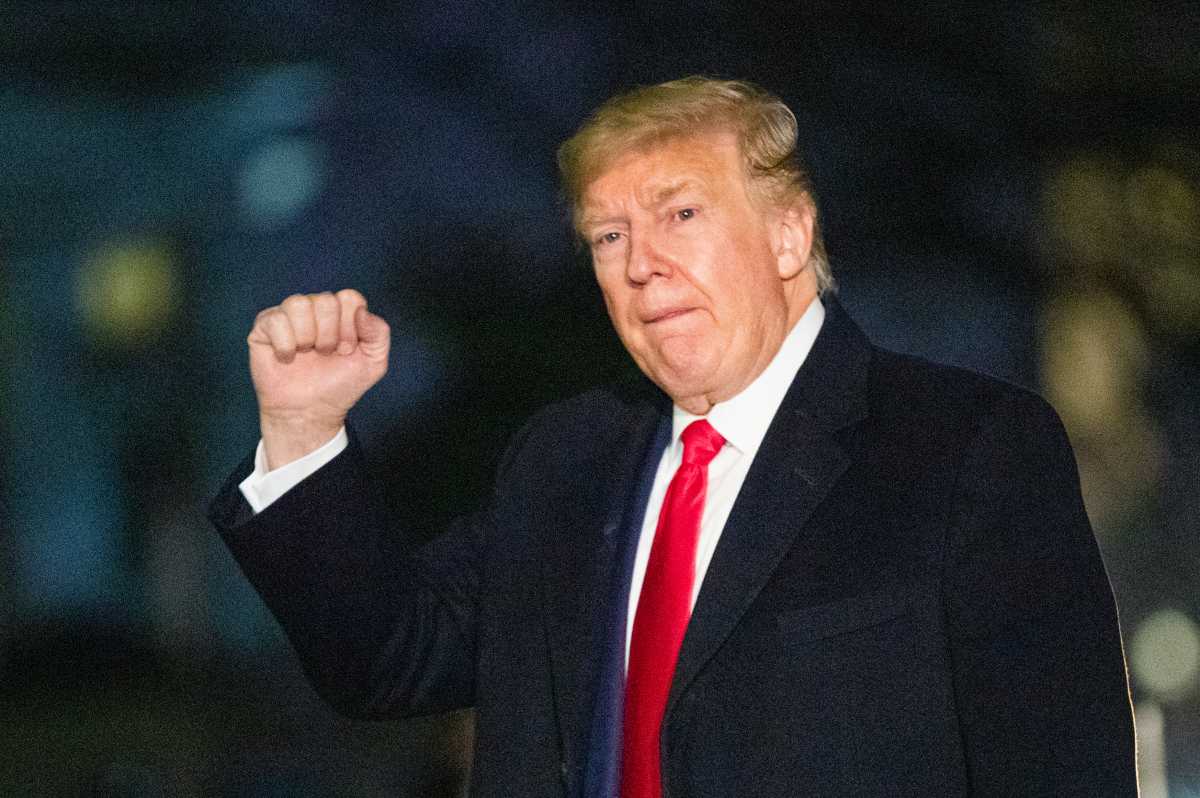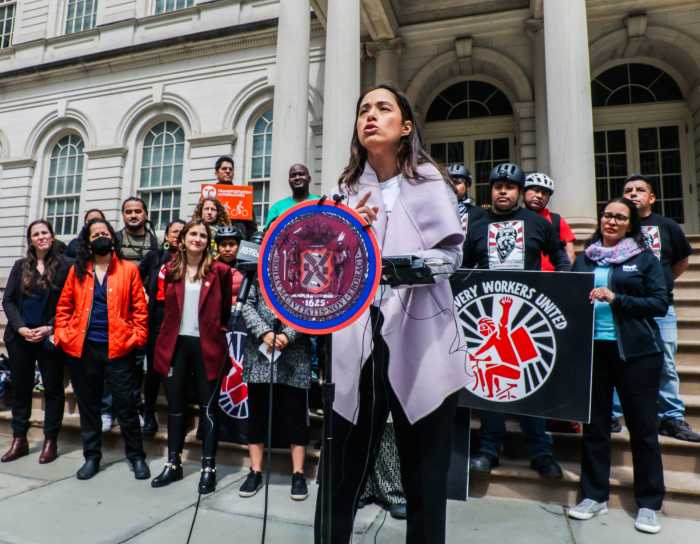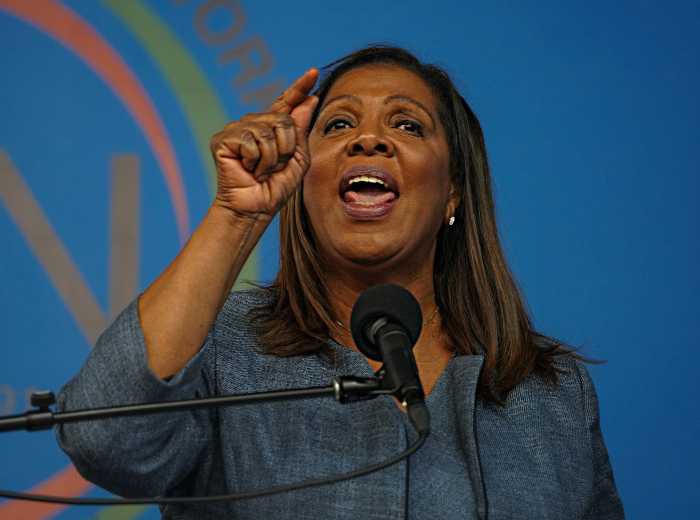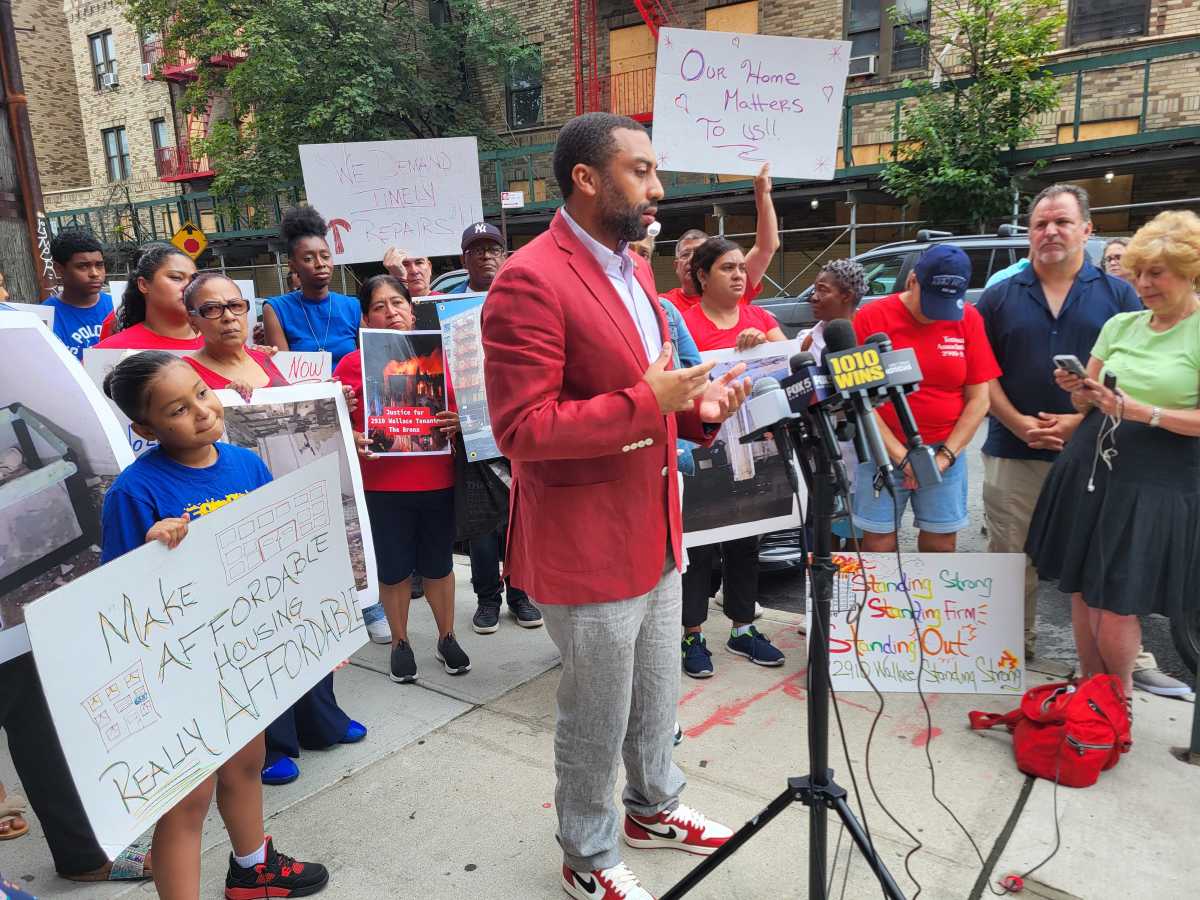BY JILL COLVIN
With all eyes on Democrats as they prepare to cast their ballots in Iowa’s highly anticipated kickoff caucuses, President Donald Trump’s reelection campaign is working to try to persuade Republican voters to turn out at their caucus sites, too — even if there’s no real competition.
The push — complete with a presidential rally, GOP-led training sessions and a new video featuring the president’s daughter-in-law — makes clear the campaign is trying to avoid the optics of empty Republican rooms on caucus night juxtaposed with Democratic gatherings brimming with enthusiastic voters.
But they also demonstrate just how dramatically Trump has seized control of his adopted party, ensuring that no Republican could credibly take him on, despite his historic unpopularity. And they show the remarkable daylight between Trump’s threadbare 2016 operation and his current Iowa campaign, which has more staffers on the ground today than it had in November 2016.
But the caucuses also provide the campaign a test run of sorts, serving as an organizing and party-building tool that reaches across all the state’s 99 counties and nearly 1,700 precincts, bringing in new volunteers, building enthusiasm and testing ground operations, officials say.
“It’s an amazing tool that will pay dividends for us for the entire year,” said Eric Branstad, a senior campaign adviser in the state who also directed Trump’s Iowa campaign in 2016. “It really gives us an opportunity to activate our base.”
“The Iowa caucuses are a chance to flex the organizational muscles of President Trump’s campaign,” said Trump campaign spokesman Tim Murtaugh, who promised a “heavy presence across the entire state” in the days ahead.
While states such as South Carolina, Nevada, Arizona, Alaska and Kansas chose to cancel their Republican primaries and caucuses outright to save cash and signal Trump’s lock on the nomination, Iowa chose to press forward, in part to maintain its status as the first-in-the-nation nominating contest.
“That has never been a consideration for us out here in Iowa. We were going to hold this caucus. Period,” said Jeff Kaufmann, the chairman of the Iowa Republican Party. While “it would have been so much easier and so much less expensive for us to just go ahead and cancel this,” he said, the state couldn’t risk giving the Republican National Committee a reason to reconsider the calendar.
“In some ways, my audience for this is about 160 people in the RNC,” Kaufmann said.
Nonetheless, he and other GOP officials have been working to remind their voters to turn out on Feb. 3, even if Trump is a shoo-in among Republicans in the state. The state party has organized over 100 caucus training sessions. Vice President Mike Pence is planning a bus tour. And Trump himself will be holding a marquee rally in Des Moines next week, just days before the caucuses to build excitement.
His campaign also released a video Wednesday in which the president’s daughter-in-law and senior campaign adviser, Lara Trump, explains the caucus process and encourages Trump supporters to take “the unique opportunity to be one of the first Americans to support President Trump at the first-in-the-nation caucuses.”
“Without opposition, we definitely have to educate, and we’ve been heightening the awareness of these caucuses,” said Kaufmann, who acknowledged that low turnout is likely on the Republican side.
In contrast, “If it is a blizzard that night, I’m guessing Bernie supporters are going to trudge through to get there,” he said, referring to Vermont Sen. Bernie Sanders, even as he maintained that Trump’s impeachment trial in Washington has dramatically energized Republican voters in the state.
In addition to casting ballots for Trump, the video released Wednesday notes that caucus attendees will also have the chance to elect delegates who will be responsible for formally choosing the nominee at the 2020 Republican National Convention in Charlotte, North Carolina.
“It is imperative that we only select the top supporters of President Donald J. Trump for this honor,” Lara Trump says in the video.
The comment underscores lingering anger about 2016, when Trump rival Ted Cruz’s sophisticated campaign operation locked in delegates who supported him instead of Trump — prompting fears of a contested convention.
Not this time. Since shortly after his election, Trump’s campaign has worked aggressively to monitor and influence local party operations to dramatically increase the likelihood that only Trump loyalists make it to the Republican nominating convention in August 2020. As part of that effort, they have overhauled state party leadership, rewritten state party rules and fanned out across county and state caucuses and conventions to elevate pro-Trump leaders and potential delegates.
That includes in Iowa, where the state Republican Party adopted new rules in consultation with the White House to seize control of the delegate selection process. In 2016, virtually all of Iowa’s delegates preferred Cruz, the senator from Texas, and they fought unsuccessfully to oppose Trump at the convention. This time around, it will be much more difficult for a Trump challenger to install anti-Trump delegates after the caucuses.
It was “embarrassing and classless,” said Kaufmann, a strong Trump supporter, of what happened in 2016. This time, “they’re not taking any chances.”
“To make sure that our state doesn’t have a black eye, we have to make sure that the very few ‘Never-Trumpers’ that climb out from underneath their rock every four years to whistle at the wind and howl at the moon … don’t embarrass our state,” he said.
But former New Hampshire GOP Chairwoman Jennifer Horn, who led her state party during Trump’s first run and is deeply critical of the president, slammed the effort as both “unprecedented” and “extremely damaging” to the party’s long-term health.
“I think that there are thousands of good people who feel like they have been pushed out,” she said. “The way that they have gone about it is so heavy handed … almost corrupt.”







































